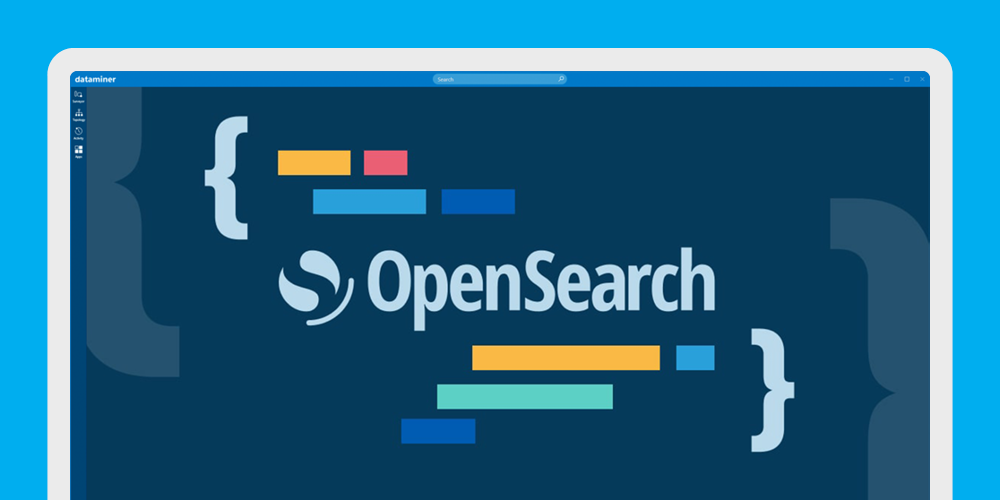In the ever-evolving landscape of data management, it’s essential for companies to remain adaptable and embrace the latest technologies to improve their services. At Skyline, we have made the decision to follow the OpenSearch split-off of Elasticsearch, rather than Elasticsearch itself. Therefore, we provide support for Elasticsearch only up to version 6.8. For upgrades, we suggest either following the OpenSearch split-off or, alternatively and preferably, exploring our Storage as a Service (STaaS) option.
Why the transition?
Our decision to move from Elasticsearch to OpenSearch is driven by several factors:
API compatibility
OpenSearch is designed to be API-compatible with Elasticsearch versions 7.10 and beyond. This makes it easy to keep DataMiner compatible and gives our users the assurance of a long-term support path.
Open source vs. proprietary
OpenSearch is an open-source project, forked from Elasticsearch. It is governed by the OpenSearch community and released under the Apache 2.0 license, making it open and freely accessible to the community for development and customization.
Elasticsearch, on the other hand, started as an open-source project but later transitioned into a more proprietary model, introducing commercial licenses for some of its features. This raised concerns in the open-source community, leading to the creation of OpenSearch as a fully open alternative.
Licensing and cost
OpenSearch is completely open source, which means it’s free to use and modify. There are no licensing fees associated with OpenSearch.
Elasticsearch offers both open-source and commercial versions. While the open-source version remains free, some advanced features and security components are only available in the paid versions, which can result in licensing costs for businesses.
Community governance
OpenSearch is community-governed and operates transparently through collaborative decision-making, ensuring a community-driven and open approach.
Elasticsearch is primarily managed by Elastic, the company behind it. While open-source versions are maintained, the shift towards a more proprietary model has caused concerns about the direction of the project.

Overall, when considering these factors and comparing OpenSearch to Elasticsearch, OpenSearch emerges as the clear winner for DataMiner usage, providing only benefits. So, when faced with the decision between these two indexing engines, we can confidently opt for OpenSearch. It’s worth noting that transitioning from Elasticsearch to OpenSearch is a smooth process.
However, it’s important to acknowledge that even with the advantages of OpenSearch, there is still a requirement to manage and maintain your database and infrastructure, which can entail significant overhead and potential problems. With that in mind, why not consider Skyline’s own offering for all your DataMiner storage needs? This includes everything currently provided by both Elasticsearch and Cassandra.
Introducing STaaS
At Skyline, we understand the importance of simplifying data management for our users. That’s why we’re excited to introduce DataMiner’s Storage as a Service (STaaS) option as the preferred choice over third-party database solutions.
Now, why should you choose STaaS?
Zero maintenance
With STaaS, you no longer need to worry about database maintenance tasks. We handle everything from upgrades to data backups, ensuring that your data remains secure and accessible without any effort on your part.
Scalability
STaaS seamlessly scales to accommodate your growing data needs. You can focus on utilizing your data for business insights while we take care of the infrastructure’s scaling requirements.
Reliability
Our STaaS option comes with a high availability promise, providing you with a dependable and consistent data storage solution.
Interested in moving to STaaS? Consult the official DataMiner documentation for more information on how to get started.